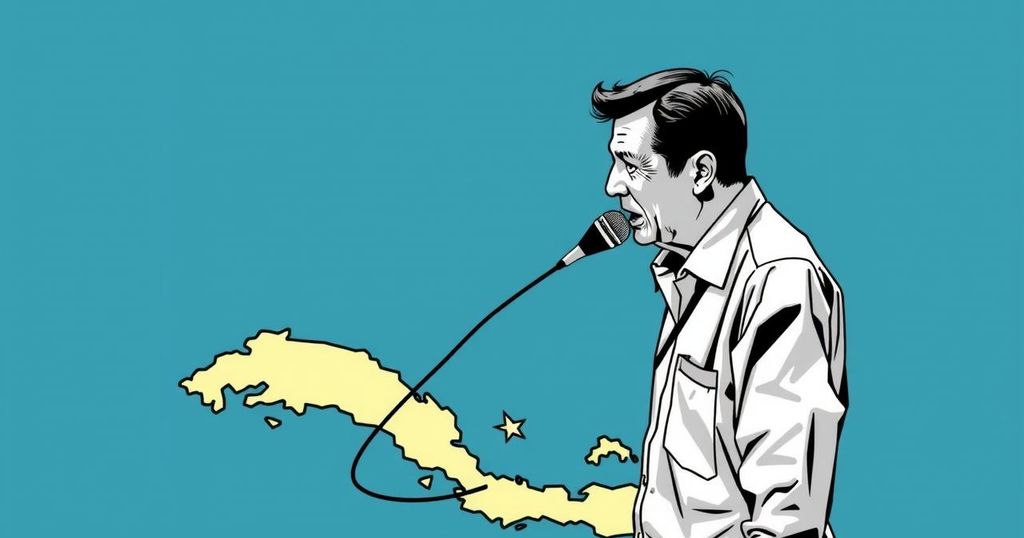President Javier Milei has dismissed Foreign Minister Diana Mondino following Argentina’s vote at the UN to condemn the US embargo on Cuba. Mondino’s departure reflects internal government unrest and marks a significant shift in Argentina’s foreign policy stance, diverging from its traditional alignment with the United States. Gerardo Werthein has been appointed as Mondino’s successor amid ongoing diplomatic considerations related to the Malvinas (Falkland) Islands controversy.
In a significant diplomatic shift, President Javier Milei has dismissed Foreign Minister Diana Mondino following Argentina’s recent vote to condemn the United States’ long-standing embargo of Cuba at the United Nations. Mondino, who has served as Foreign Minister, is set to be replaced by Argentina’s current Ambassador to the United States, Gerardo Werthein. The change in leadership comes after considerable speculation concerning Mondino’s effectiveness within the administration, particularly regarding her absence from key international engagements with President Milei. Following the controversial vote at the UN, where the Milei administration supported a resolution calling for an end to the US blockade of Cuba, it appears this decision precipitated Mondino’s removal. The Argentine government’s statement reiterated its commitment to opposing the Cuban regime while also launching a review of foreign ministry staff to root out elements perceived as opposed to the government’s stance on freedom. The UN General Assembly overwhelmingly endorsed a resolution calling for an end to the US embargo, achieving 187 votes in favor, with only the United States and Israel dissenting. This marks the first instance under President Milei’s administration that Argentina has deviated from its traditional alignment with US positions on foreign policy. Milei’s government has been put under scrutiny amid a need to garner support from Cuba and its allies regarding future claims over the disputed Malvinas (Falkland) Islands. The appointment of Werthein, with his background in business and his current role as vice-president of the International Olympic Committee, signals a strategic pivot in Argentina’s diplomatic approach, aligning with a broader support for Cuba from other Latin American nations. Although the resolution will have minimal practical implications, it underlines a significant diplomatic narrative for both Cuba and Argentina.
The Argentine government’s position on the embargo against Cuba marks a departure from its historical alignment with the United States. President Javier Milei’s administration is navigating complex diplomatic waters, particularly in the context of Latin America’s growing opposition to what is perceived as imperialistic hegemony by the United States. The ongoing situation involving the Malvinas Islands adds an additional layer of complexity, as Argentina seeks allegiance from neighboring countries in its long-standing sovereignty claim.
In conclusion, President Javier Milei’s decision to dismiss Foreign Minister Diana Mondino aligns with a broader strategic redirection of Argentina’s foreign policy towards Cuba. This change underscores the significance of international relations within the context of regional solidarity in Latin America. The implications of this diplomatic realignment could play a pivotal role in Argentina’s quest for support regarding territorial claims, reflecting the multifaceted nature of contemporary geopolitics.
Original Source: www.batimes.com.ar






